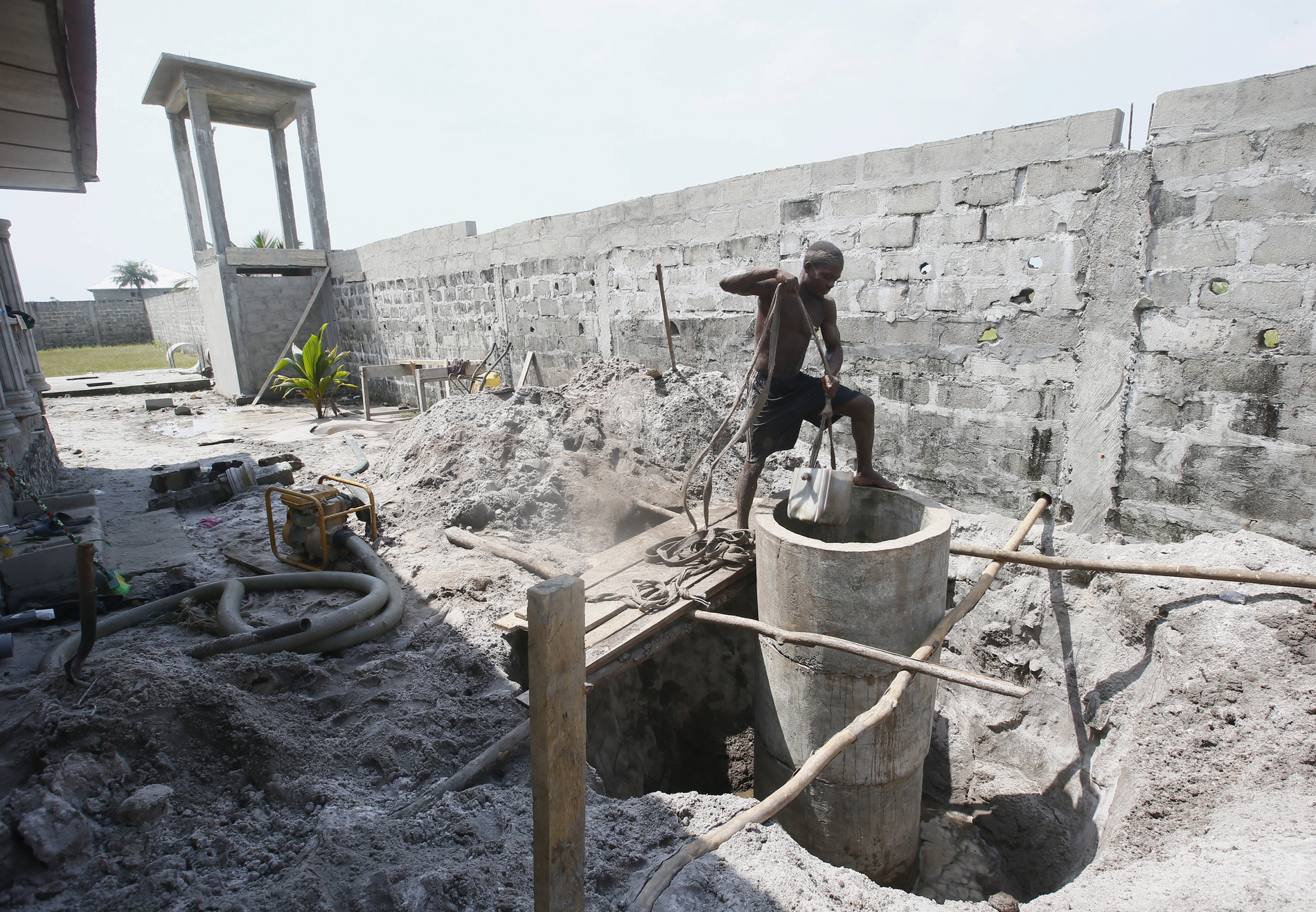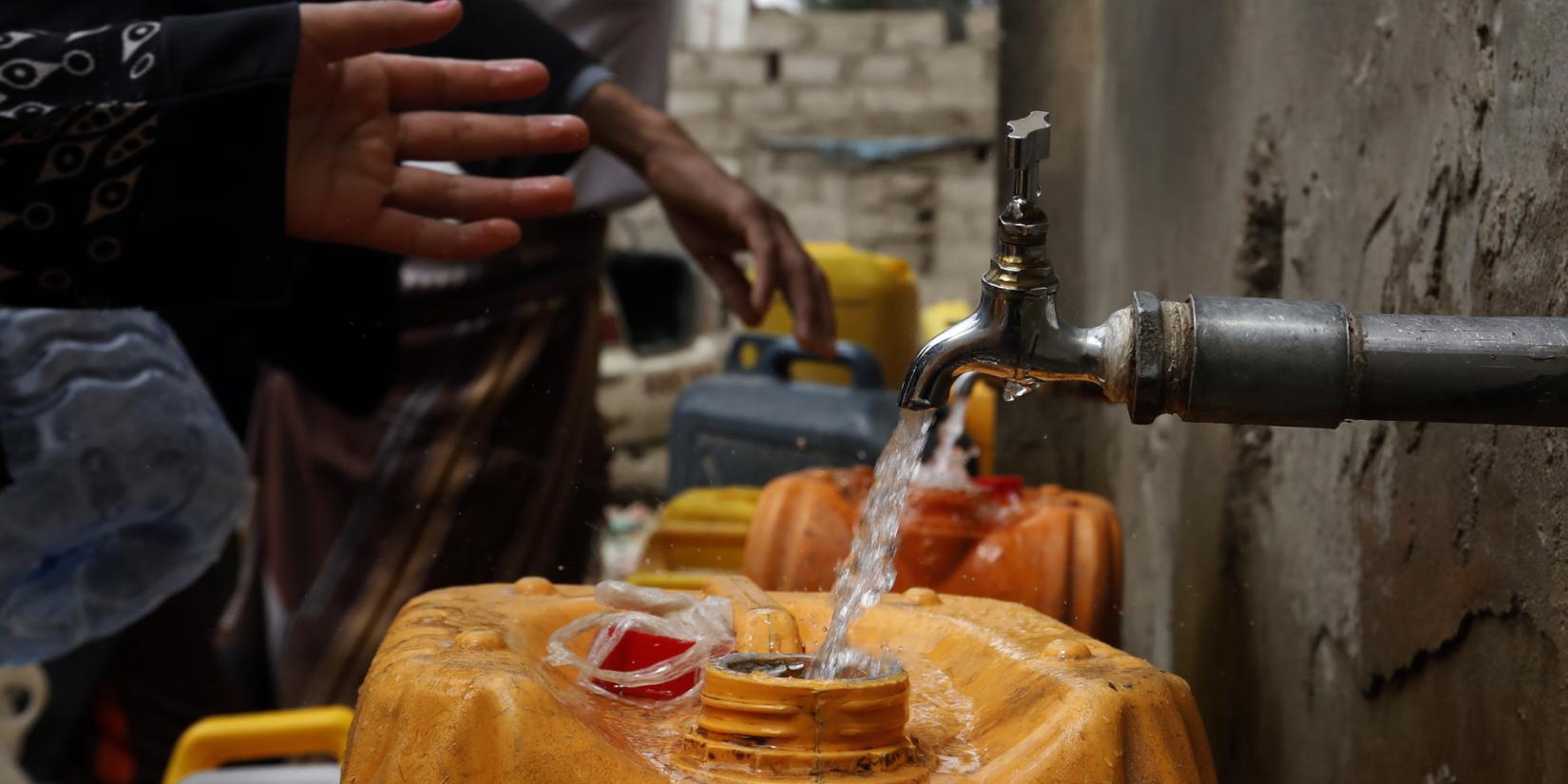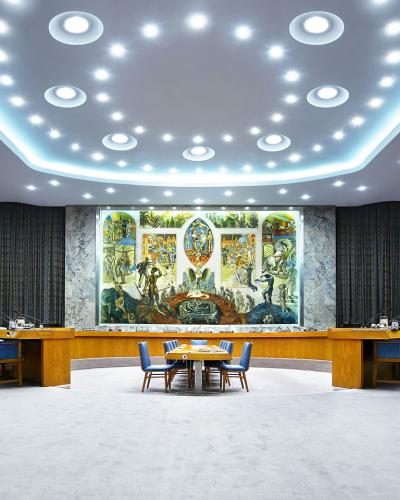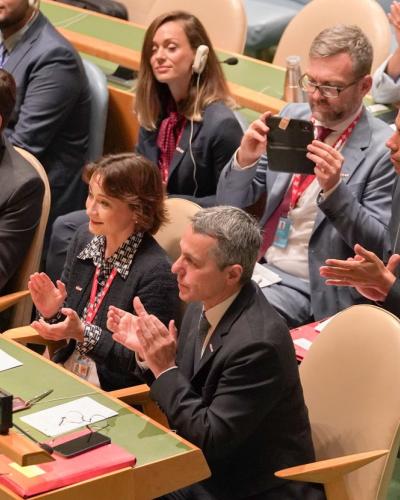When civilians cannot access clean drinking water because of armed conflict, they face death, disease or forced displacement at every turn. During conflicts, international humanitarian law (IHL) protects objects that are vital to the survival of the civilian population, such as water infrastructure. Switzerland's foreign policy advocates compliance with IHL, which it also works to strengthen in the multilateral framework. One such example is an event organised by Switzerland during a UN Security Council open debate on protecting civilians in armed conflicts.
In December 2014, the 'Islamic State' group deliberately contaminated drinking water with crude oil in the Iraqi province of Salahaddin. Between 2015 and 2021, 122 airstrikes targeted water infrastructure in Yemen. Because of this, more than 15 million people are dependent on aid deliveries for water supplies. Water resources have always been one of the first casualties during times of conflict.
The sharp rise in urban warfare in recent decades means that around two billion people worldwide are threatened by water scarcity as a direct result of armed conflict. Water scarcity is not just a lack of water for people and farming, but is linked to the rise and spread of disease and epidemics such as cholera and COVID-19 because of limited hygiene.
Breaches of IHL
IHL is based on the four Geneva Conventions and their additional protocols, which protect persons who are not, or no longer, partcipating in hostilities. Civilian objects such as water infrastructure are protected as a principle. The conventions also specify that it is prohibited to attack, destroy, or render useless irrigation and drinking water supplies and facilities for the purpose of starving civilians.

Copyright: Keystone
Framework enables humanitarian aid
IHL is central to the foreign policy orientation of Switzerland, whose international standing is also based on the country's humanitarian tradition. In line with its Foreign Policy Strategy 2020–23, Switzerland advocates compliance with IHL, which it also works to strengthen in the multilateral framework. In principle, parties to a conflict have a duty to provide humanitarian assistance and protection. Switzerland also undertakes humanitarian action in the water sector. In Ukraine, prior to the outbreak of war on 24 February 2022, Swiss Humanitarian Aid was present on both sides of the contact line throughout the simmering conflict in the country's east, organising convoys which always included chemicals to treat drinking water for around four million people in Donbas.
UN Security Council open debate focuses on protecting civilians
On 25 May 2022, Switzerland spoke on behalf of the Group of Friends of the Protection of Civilians in a UN Security Council open debate on this issue. Switzerland heads the group of 27 states, which call for compliance with IHL and the protection of civilians. This year's debate is taking place against a backdrop of various events throughout the week in New York. On 24 May, an event on protecting water and water infrastructure in armed conflicts was organised by Switzerland, Senegal, Slovenia and UNICEF in order to reiterate the obligations under IHL in terms of water protection and to discuss examples of how to improve this protection, the role of humanitarian organisations in supporting access to clean water, and the Security Council's contribution to water-related issues in armed conflicts.
Links
International humanitarian law
https://www.eda.admin.ch/eda/en/fdfa/foreign-policy/international-law/international-humanitarian-law.html
FURTHER INFORMATION
War crimes investigation in Ukraine
https://www.eda.admin.ch/eda/en/fdfa/fdfa/aktuell/newsuebersicht/2022/04/untersuchung-kriegsverbrechen-ukraine.html
Civilians under fire
https://www.eda.admin.ch/eda/en/fdfa/fdfa/aktuell/newsuebersicht/2021/05/uno-sicherheitsrat-schutz-zivilbevoelkerung.html
Switzerland is committed to strengthening international humanitarian law
https://www.eda.admin.ch/eda/en/fdfa/fdfa/aktuell/newsuebersicht/2020/11/ikrk-humanitaeres-voelkerrecht.html




